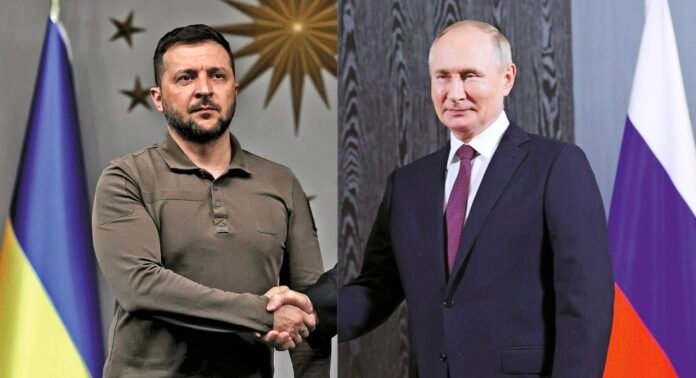Western leaders said on Saturday that a U.S.-drafted peace framework for ending Russia’s full-scale invasion of Ukraine could serve as a starting point for negotiations, but stressed that the document required significant revision before Ukraine could be expected to agree. Their joint stance reflected a coordinated effort to strengthen Kyiv’s bargaining position ahead of a Thursday deadline set by U.S. President Donald Trump.
The discussions unfolded on the margins of the G20 summit, where European and other Western officials held urgent consultations after the White House asked Ukraine to respond to a 28-point proposal that includes several concessions long sought by Moscow. Diplomats said the U.S. plan endorses elements that remain deeply problematic for Kyiv, prompting European governments to push for amendments.
Trump, speaking briefly to reporters, indicated flexibility in the plan, saying it was “not the final offer.” His comments suggested the administration might accept modifications as Ukraine and its allies warn that the draft, while potentially useful as a framework, cannot be adopted in its current form.
To coordinate their response, national security advisers from France, the United Kingdom, and Germany agreed to meet European Union, U.S., and Ukrainian officials in Geneva on Sunday. Italy is also expected to participate, according to diplomatic sources familiar with the planning.
Leaders from the EU, Germany, France, the U.K., Canada, the Netherlands, Spain, Finland, Italy, Japan, and Norway issued a joint statement praising the attempt to move the conflict toward resolution but emphasizing that critical points still need work. Several governments have privately expressed concern that endorsing Russian territorial gains or limiting Ukraine’s future defense capabilities could endanger European security as a whole.
French President Emmanuel Macron said that any peace arrangement must be shaped through broad international consultation. “There are many elements that cannot simply be an American proposal,” he said, adding that a durable agreement must protect Ukrainians and ensure long-term stability across Europe.
Their interventions followed warnings from President Volodymyr Zelenskiy, who on Friday told Ukrainians that the country faced a painful choice: compromise on sovereignty or risk losing key U.S. support. He vowed not to abandon Ukraine’s “dignity and freedom,” insisting that security guarantees would be essential in any final deal to prevent future aggression.
The strong reaction from European leaders came after Zelenskiy’s message, according to a German government source, who described the atmosphere at one meeting held in a Johannesburg conference room named “Lion.” Leaders, the source said, embraced a “lion-like spirit” as they debated how to strengthen Ukraine’s position before the Thursday deadline.
German Chancellor Friedrich Merz underscored the broader stakes. “If Ukraine loses this war and possibly collapses, it will have an impact on European politics as a whole,” he said. “There is an opportunity to end this war, but we are still far from an outcome that can be called acceptable.”
On the battlefield, some Ukrainian troops expressed frustration at the possibility of being asked to concede territory after years of intense fighting. A 33-year-old artilleryman positioned near the eastern city of Pokrovsk questioned why Ukrainians were “defending borders only to hand them over.”
The U.S. proposal, as communicated to Kyiv, calls for territorial concessions, restrictions on Ukraine’s armed forces, and the abandonment of long-standing aspirations to join NATO. Trump told reporters that Zelenskiy must decide by Thursday whether to accept the plan, saying that if he refused, “they should just keep fighting.”
Western leaders said they were alarmed at provisions that could leave Ukraine vulnerable to future attack, and stressed that any clauses relating to the EU or NATO would require approval from member states. Russian President Vladimir Putin has welcomed the American proposal as a possible basis for ending the conflict, heightening concerns among Kyiv’s allies that the draft may tilt too far toward Moscow’s interests.
Attention now turns to Sunday’s talks in Geneva, where European officials hope to secure revisions that can keep Ukraine engaged while preserving Kyiv’s long-term security interests.
Source:Africa Publicity








